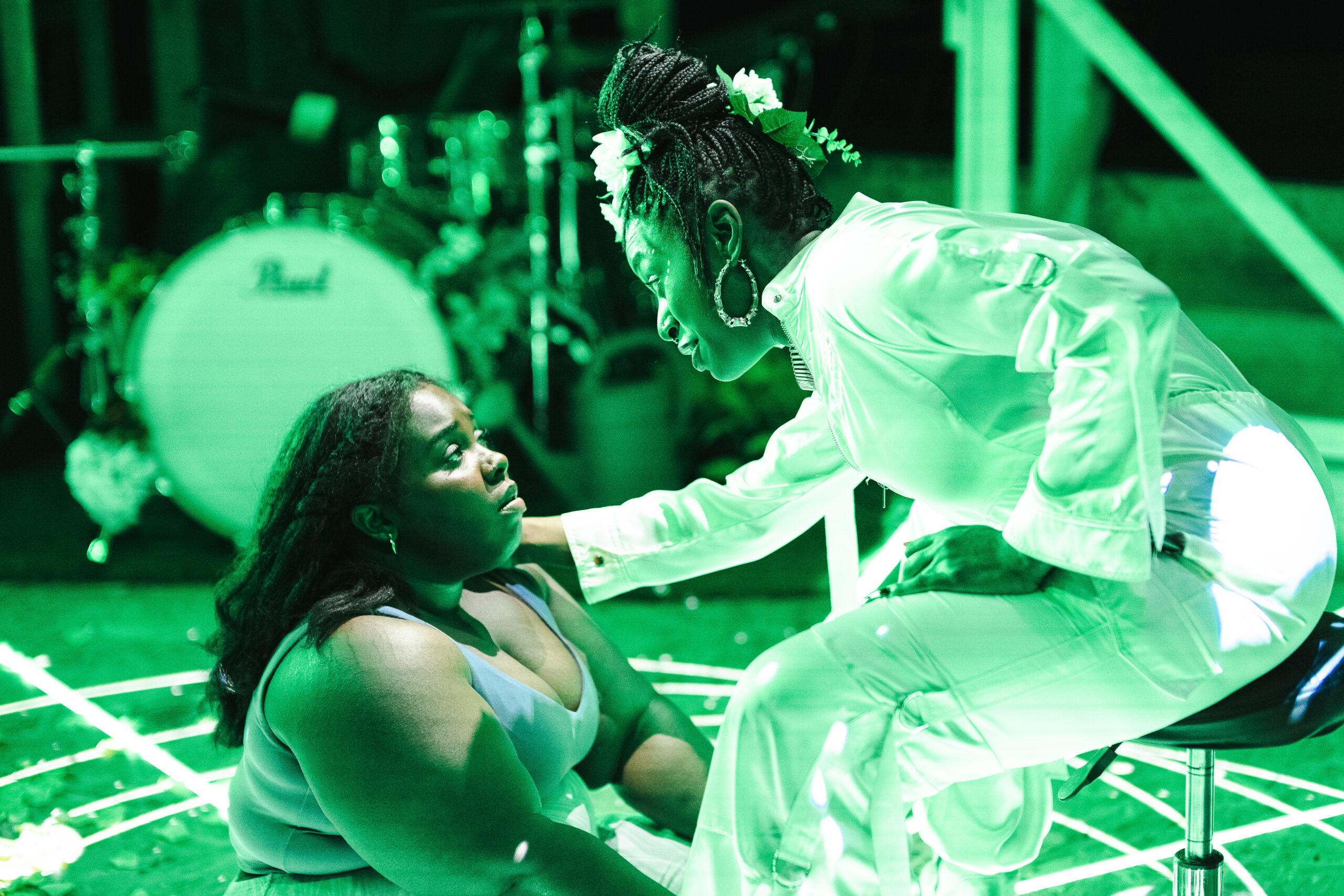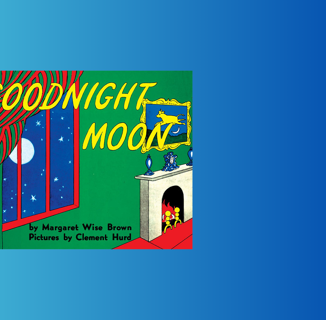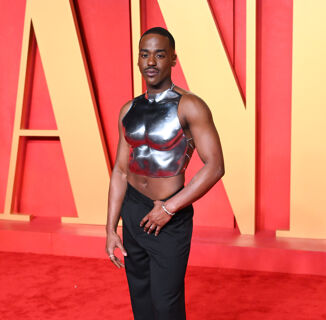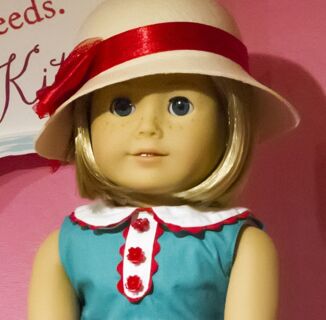The idea of leaving behind a world of hatred, injustice, and oppression is relatable to many and the play AMANI knows that. Written by nonbinary playwright a.k. payne, directed by Josiah Davis, and produced by Rattlestick Theater and the National Black Theatre, AMANI tells the story of a young Black girl of the same name (Denise Manning) whose father, Smith (Eden Marryshow), vows to create a rocket ship that will take them both into outer space and far away from the world they struggle to navigate. While with Manning and Marryshow, Kai Heath, Mars Rucker, and Omari K. Chancellor round out a cast that creates a world where Black people can seek out their own voice and dreams.
At the heart of AMANI is the question: can our dreams take us away from the reality we live in?
Over the course of an hour and 40 minutes, the cast of AMANI strive to answer that question with Smith’s rocket ship as their guide. Within an intimate venue at Rattlestick Theater, audiences journey with the namesake character and those in her orbit to bear witness to Black people navigating a world that doesn’t want them to dream, let alone exist.
Manning’s Amani is bright-eyed and charismatic opposite Marryshow’s hopeful and passionate Smith. The two become the personification of the “girl dad” relationship, while also examining what happens to parent/child relationships when impacted by the prison industrial complex. The two also highlight the world that Black millennials and Gen Zers currently inherit.
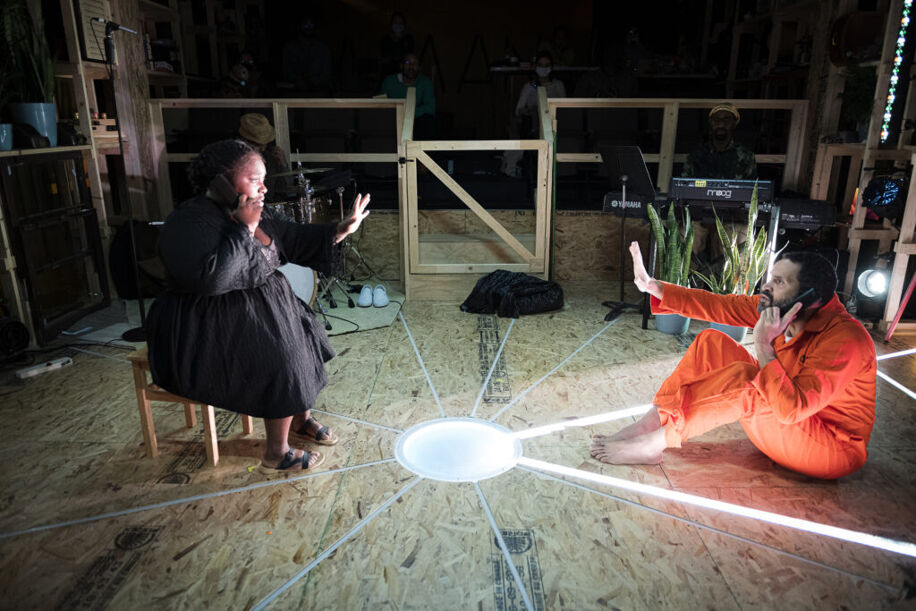
Ruckers does double duty as a spiritual narrator and as Amani’s late mother Dasia, adding more magic to the show with their presence. Each scene Ruckers is in feels fleeting like a comet, yet omnipresent like space. While Amani experiences her mother this way, so does the audience as Dasia guides the story and, at times, Amani.
What AMANI does well is take Black dreams deferred and give them life through various characters. To support these characters in their exploration of this is the accompaniment of jazz, specifically the musical stylings of John Coltrane. With a live band and the powerful vocals of Ruckers’ Dasia, Coltrane’s work comes alive with a dash of whimsical melancholy that Ruckers’ voice provides.
Additionally, AMANI uses different abstract methods to push different plot points or actions, like time jumps, memories, and side conversations. At times, the more magical or abstract components of the play become a bit hard to follow with the story, but ultimately are an aesthetically pleasing extension of the play when paired with the music and minimal set design.
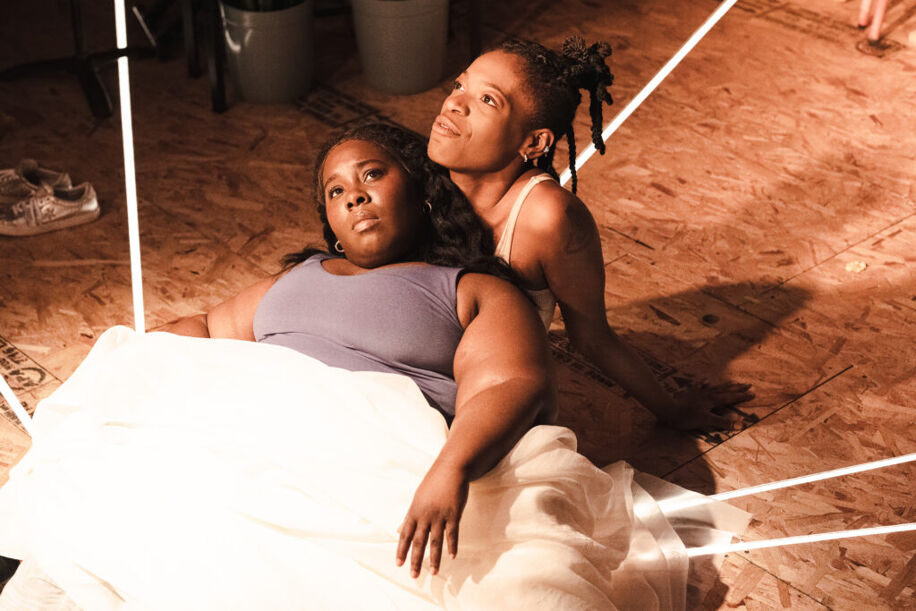
With that minimalism and intimate venue, audiences have no choice but to hone in on the nuances of each character. While some characters, like Kofa, feel less developed than others, each becomes an extension of Amani’s ability to find her own voice and her own dream. This is easier said than done for people socialized as Black women, but payne displays this challenge through well-written dialogue between Amani and the people who enter and exit her life.
A standout scene is when Amani reaches a breaking point in her life and her mother’s spirit appears to guide her. The scene, not only beautiful in its staging and set effects, becomes an inspirational testament to dreaming big and a reminder of the plight that many people socialized as Black women experience. It also becomes a fabulous catalyst for Amani’s queer storyline to blossom that never focuses on “coming out”, but rather the epiphany of acknowledging feelings that were there all along and supported by those around you.
Ultimately, AMANI is an ode to the freedom to exist. The freedom to be Black, to be queer, to be outside of the confines of gender, and to simply be. While the play explores that notion, it also brings audiences in to question what freedom is, what it isn’t, and if it’s truly possible to achieve. Regardless of your answer to that question, AMANI wants you to believe that you, too, can make it to the moon, whatever that looks like for you.
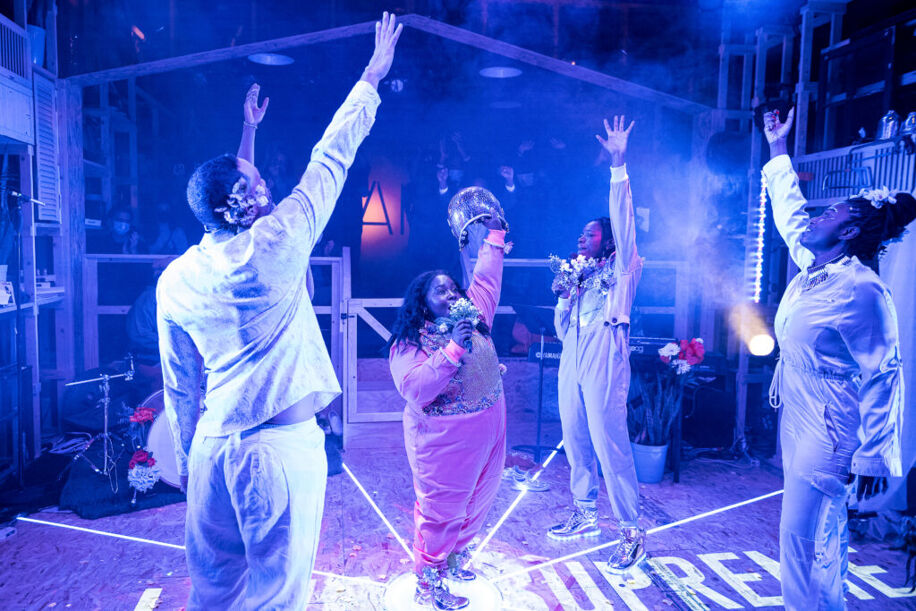
AMANI is showing at the Rattlesnake Theater through March 5, 2023.
Help make sure LGBTQ+ stories are being told...
We can't rely on mainstream media to tell our stories. That's why we don't lock our articles behind a paywall. Will you support our mission with a contribution today?
Cancel anytime · Proudly LGBTQ+ owned and operated
Read More in Entertainment
The Latest on INTO
Subscribe to get a twice-weekly dose of queer news, updates, and insights from the INTO team.
in Your Inbox

